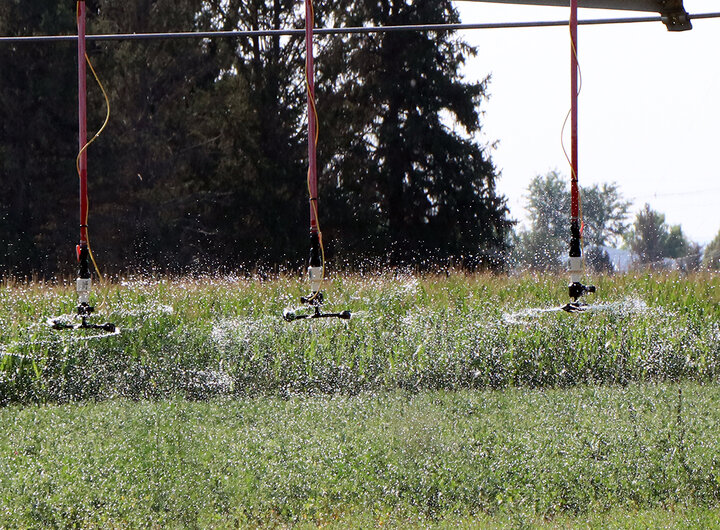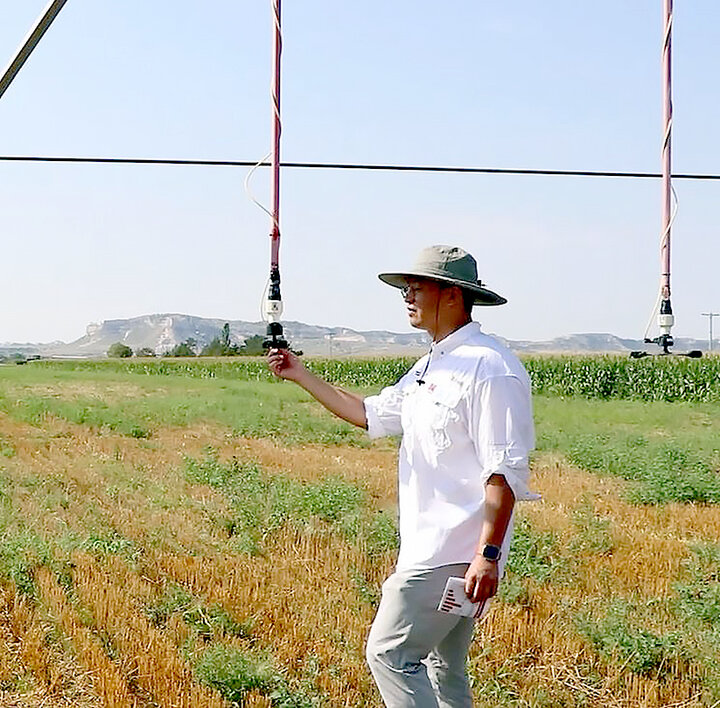The University of Nebraska-Lincoln, Panhandle Research Extension and Education Center has been working with KZValve of Greenwood, Nebraska. The two are working on a new valve for pivot irrigation. In 2021, KZValve presented to several UNL faculties a product that has self-power generating capabilities and was looking for applications.

Xin Qiao, Nebraska Extension water and irrigation management specialist, proposed to KZValve that “the innovative self-power generating feature could possibly be used in a partial variable rate irrigation (VRI) setup.” KZValve submitted the proposal to the Nebraska Department of Economic Development and received funding with UNL as a co-awardee.
While using the valve for VRI Qiao’s idea, KZValve’s mechanical engineer, Richard Faflak, spent a lot of time engineering the valve to make it work.
“At KZValve, there was always an idea to develop and test a valve solution for the irrigation industry,” said Richard Faflak, KZValve mechanical engineer. The company has done research and development with power generation and wireless technologies, and the partial variable rate irrigation or VRI project is a way to extend that development.
Qiao and Faflak presented the new valve with research and findings to growers at this summer’s annual Panhandle Agriculture Research and Technology Tour (PARTT). The project is still in the research and development phase.
“We anticipate at least another season of testing and data gathering, which may benefit from farmers willing to try the system on their own test plots,” Faflak said. “At that point, if we have decent feedback and support, we can consider commercial viability and continue to bring the hardware system up to our more rigorous standards.”

One of the main objectives of the product is to reduce or eliminate the need for cables, as each unit is designed to be self-maintaining and remotely controlled. In terms of flow rates and throw distances, it's meant to be a drop-in replacement for common current nozzles or sprinklers. There are technical aspects of the system that may require some changes.
“One thing we are concerned about and have not tested is the potential influence on pressure. Imagine when you shut off many valves all of a sudden and then turn them all back on,” Qiao said. “For pivots without variable frequency drive that could regulate flow and pressure, it could cause problems, and we are hoping to evaluate this during the next phase of the project.”
Qiao’s program has also developed a web-based app to control the valve and to implement variable rate irrigation without needing to set up additional hardware like a control panel. This allows farmers and producers to control the valves remotely, either from their home or a truck.

